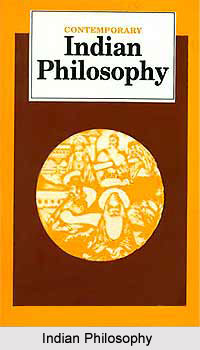 Nyaya Sutras are considered as ancient Indian texts of the Classical Indian philosophy. These Nyaya Sutras were probably composed by Aksapada Gautama in 2nd century AD. The sutras comprise five chapters, each having two sections. The core point of Nyaya sutras dates back to nearly 2nd century AD, however significant later insertions were made. Nyaya Sutra is sometimes known as Tarka-Vidya, meaning the Science of Debate, Vada-Vidya, meaning Science of Discussion. One of the special features of Nyaya Sutras is Tarka. Thus, most of the categories and features of these texts are better understood from this perspective. Aksapada Gautama is sometimes given the religious titles such as `Rishi` or `Maharshi`. There are four principal topics of Nyaya sutras namely art of debate, syllogism, means of valid knowledge and examination of different views.
Nyaya Sutras are considered as ancient Indian texts of the Classical Indian philosophy. These Nyaya Sutras were probably composed by Aksapada Gautama in 2nd century AD. The sutras comprise five chapters, each having two sections. The core point of Nyaya sutras dates back to nearly 2nd century AD, however significant later insertions were made. Nyaya Sutra is sometimes known as Tarka-Vidya, meaning the Science of Debate, Vada-Vidya, meaning Science of Discussion. One of the special features of Nyaya Sutras is Tarka. Thus, most of the categories and features of these texts are better understood from this perspective. Aksapada Gautama is sometimes given the religious titles such as `Rishi` or `Maharshi`. There are four principal topics of Nyaya sutras namely art of debate, syllogism, means of valid knowledge and examination of different views.
The work of Nyaya Sutras begins with an instruction of the subject matter, purpose, and the connection of the subject matter in accomplishment of the said purpose. These texts also mention that the ultimate purpose is salvation, which means complete freedom from pain. It is attained by knowledge of 16 categories and these are -
* Means of valid knowledge (pramana);
* Objects of valid knowledge (prameya);
* Doubt (samshaya);
* Purpose (prayojana);
* Example (dristanta);
* Conclusion (siddhanta);
* The constituents of a syllogism (avayava);
* Argumentation (tarka);
* Ascertainment (nirnaya);
* Debate (vada);
* Disputations (jalpa);
* Destructive criticism (vitanda);
* Fallacy (hetvabhasa);
* Quibble (chala);
* Refutations (jati); and
*Points of the opponent`s defeat (nigrahasthana)
In the Nyaya Sutras, Aksapada Gautama proposes that a person can attain liberation by contradicting both unhappiness and illusion. He further states that by consecutively dispersing bad character, false conceptions, entangling action, and misery one can attain final liberation. However, the Nyaya philosophers are of the opinion that awareness is not a vital quality of the soul. They teach that a released soul has no consciousness. Thus, the Nyaya idea of release of the soul puts it in the condition of a dead stone. This attempt of the philosophers of Nyaya Sutras to kill the soul`s natural consciousness is called `sato mrtim` by personified Vedas. Further, the Nyaya Sutras mention that there are four ways of achieving valid knowledge and these are inference, comparison, perception, and verbal testimony.
Nyaya Sutra states that it is by understanding the nature or reasoned inquiry, epistemology and debating theory that one attains the highest goal. Nyaya Sutra amplifies the point, citing an exact sequence of causal relations between knowledge and liberation.



















